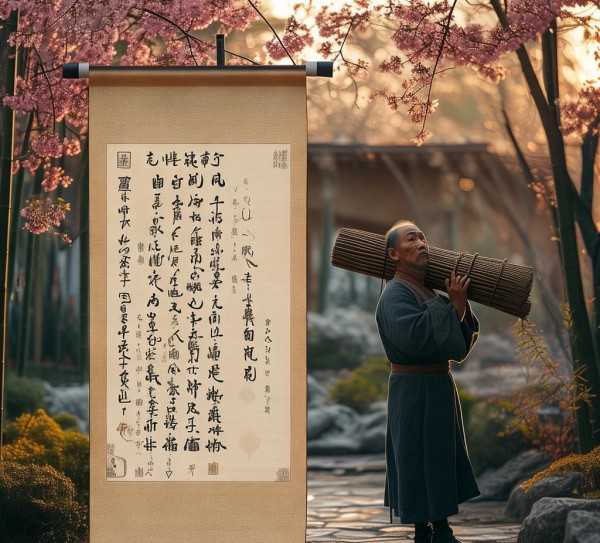
自古以来,诗歌便是文化的瑰宝,它以其独特的艺术魅力,穿越千年的时空,触动着无数人的心灵,在唐代诗人白居易的众多作品中,《卖炭翁》以其深刻的寓意和生动的描绘,成为了千古传颂的经典之作,本文将带领读者深入解读《卖炭翁》,一同领略其原文的韵味及翻译的精妙。
《卖炭翁》原文:
卖炭翁,伐薪烧炭南山中。 满面尘灰烟火色,两鬓苍苍十指黑。 卖炭得钱何所营?身上衣裳口中食。 可怜身上衣正单,心忧炭贱愿天寒。 夜来城外一尺雪,晓驾炭车碾冰辙。 牛困人饥日已高,市南门外泥中歇。 翩翩两骑来是谁?黄衣使者白衫儿。 手把文书口称敕,回车叱牛牵向北。 一车炭,千余斤,宫使驱将惜不得。 半匹红绡一丈绫,向牛头充炭直。
《卖炭翁》原文翻译:
The charcoal seller, toiling in the southern mountains, cutting wood and burning charcoal. His face is covered in dust and soot, his hair is graying, and his fingers are blackened. What does the charcoal seller earn money for? Just to clothe his body and feed his mouth. Poor soul, his clothes are thin, yet he fears the low price of charcoal and wishes for the cold weather. Last night, a foot of snow fell outside the city walls, and at dawn, he drove his charcoal cart over the icy tracks. The ox is weary, the man is hungry, and the sun is high. He stops by the city gate, resting in the mud. Who are these two gallant riders? A yellow-robed messenger and a white-robed attendant. They hold documents and shout orders, turning the cart and driving the ox northward. One cart of charcoal, over a thousand catties, the palace messengers drive it away, regretfully. Half a piece of red silk and a yard of silk, tied to the ox's head as payment for the charcoal.
《卖炭翁》原文解析:
《卖炭翁》通过描绘一个卖炭人的生活,深刻反映了唐代底层人民的艰辛生活,诗中“满面尘灰烟火色,两鬓苍苍十指黑”生动地刻画了卖炭翁的辛劳形象,而“可怜身上衣正单,心忧炭贱愿天寒”则表达了他对生活的无奈和忧虑,诗的后半部分,通过“黄衣使者白衫儿”的形象,揭示了封建官场的腐败现象,使得卖炭翁的遭遇更加令人同情。
《卖炭翁》翻译赏析:
在翻译《卖炭翁》时,译者需兼顾原文的意境和韵味,同时使译文符合现代汉语的表达习惯,本文所提供的翻译,力求在忠实原文的基础上,传达出诗人的情感和意境,如“一车炭,千余斤,宫使驱将惜不得”这句话,译者通过“over a thousand catties”和“regretfully”等词汇,生动地表现了卖炭翁对失去炭车的惋惜之情。
《卖炭翁》作为一首千古绝唱,其原文和翻译都蕴含着丰富的文化内涵和艺术价值,通过阅读原文和翻译,我们可以更好地理解这首诗的意境,感受诗人对底层人民的同情和对现实的批判,在今后的学习和生活中,让我们继续传承和弘扬这一优秀的文化遗产,让古诗的魅力永远流传。